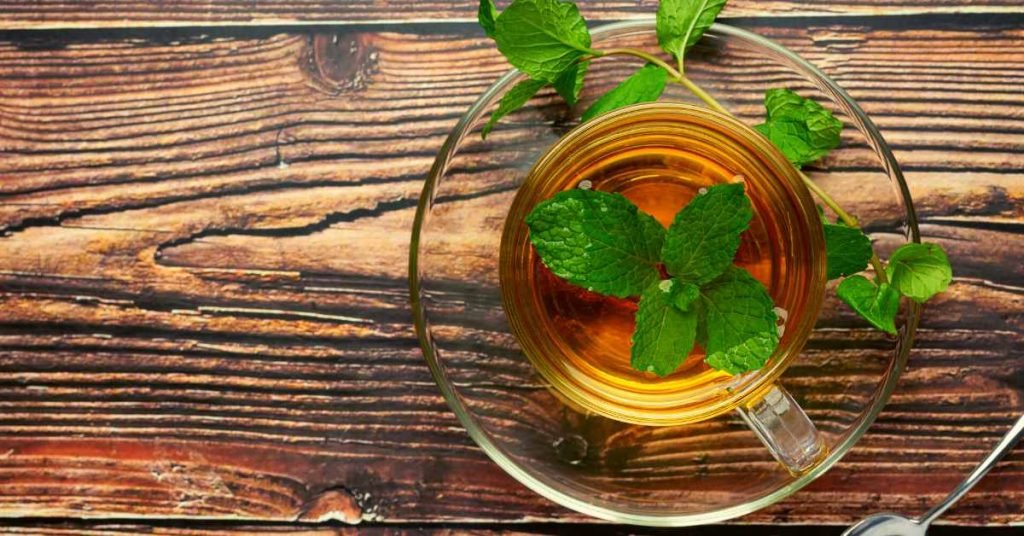Tonsillitis, characterized by inflammation of the tonsils, can bring discomfort and difficulty in swallowing, often accompanied by symptoms such as sore throat, fever, and swollen lymph nodes.
While medical intervention, including antibiotics in certain cases, is essential for treating bacterial tonsillitis, complementary and natural remedies, such as tea, can play a supportive role.
This article explores the potential benefits of tea in the treatment of tonsillitis, discussing various types of tea, their properties, and practical ways to incorporate tea into a holistic approach to recovery.
Understanding Tonsillitis

Tonsillitis is the inflammation of the tonsils, which are two small masses of tissue located at the back of the throat. The condition can be caused by viral or bacterial infections and is common in both children and adults.
Symptoms include a sore throat, difficulty swallowing, fever, and sometimes the presence of white or yellow spots on the tonsils.
Tonsillitis can be acute or chronic, and while viral cases often resolve on their own, bacterial tonsillitis may require medical intervention.
Types of Tea and Their Potential Benefits
Green Tea:
Green tea, derived from Camellia sinensis leaves, is renowned for its high concentration of polyphenols, particularly catechins. These compounds have antioxidant and anti-inflammatory properties, which may help reduce inflammation in the tonsils and provide relief from sore throat symptoms. Green tea also contains the amino acid L-theanine, known for its relaxing and immune-supportive properties.
Chamomile Tea:
Chamomile tea, made from dried chamomile flowers, is celebrated for its calming and anti-inflammatory effects. It may help soothe the sore throat associated with tonsillitis, reduce inflammation, and promote relaxation. Chamomile tea is often considered a gentle remedy suitable for individuals of all ages.
Peppermint Tea:

Peppermint tea, brewed from the leaves of the Mentha piperita plant, has menthol, which imparts a cooling sensation. This can be particularly soothing for a sore throat and may help alleviate pain and discomfort associated with tonsillitis. Peppermint tea is also known for its antibacterial properties.
Ginger Tea:
Ginger tea, made from the rhizome of the ginger plant, is valued for its anti-inflammatory and immune-boosting properties. It may help reduce inflammation in the tonsils, provide relief from pain, and contribute to overall immune support during tonsillitis.
Honey and Lemon Tea:
Combining honey and lemon with warm water to create a soothing tea can be a simple yet effective remedy for tonsillitis. Honey has antimicrobial properties and can help coat the throat, while lemon provides vitamin C and adds a pleasant flavor.
Ways to Incorporate Tea into Tonsillitis Treatment
Warm Tea for Soothing Relief:
Sipping on warm tea throughout the day can provide soothing relief for a sore throat. The warmth of the tea helps relax the throat muscles, while the properties of certain teas, such as chamomile or ginger, may contribute to the reduction of inflammation.
Throat Gargle with Tea:

Using cooled tea as a gargle can be an effective way to directly target the tonsils. Brew a strong cup of tea, allow it to cool, and use it as a gargle several times a day. Peppermint or chamomile tea can be particularly beneficial for this purpose.
Herbal Steam Inhalation:
Inhaling steam infused with herbal tea can help ease congestion and soothe the respiratory passages. Prepare a cup of chamomile or peppermint tea, cover your head with a towel, and inhale the steam. This can be especially helpful if tonsillitis is accompanied by nasal congestion.
Honey and Lemon Infusion:
Create a soothing honey and lemon tea by adding a teaspoon of honey and a squeeze of lemon to warm water. This concoction not only provides relief for a sore throat but also offers antimicrobial properties from honey.
Hydration with Herbal Teas:
Staying well-hydrated is crucial during tonsillitis. Herbal teas, in addition to providing therapeutic benefits, contribute to hydration. Encourage frequent sips of herbal tea, especially for individuals who may find it challenging to consume solid foods.
Properties That Make Tea Helpful for Tonsillitis
Anti-Inflammatory Effects:
Many types of tea, such as chamomile, green tea, and ginger tea, possess anti-inflammatory properties. These properties can help reduce the swelling and inflammation of the tonsils, providing relief from pain and discomfort.
Antioxidant Benefits:
The antioxidants in tea, particularly in green tea, contribute to immune support. Antioxidants help combat oxidative stress and support the body’s natural defenses against infections, which can be beneficial during tonsillitis.

Antimicrobial Properties:
Certain teas, like peppermint and honey, have antimicrobial properties that may help combat bacterial or viral infections contributing to tonsillitis. Peppermint, in particular, has been studied for its antibacterial effects.
Soothing and Relaxing:
The warmth and soothing properties of herbal teas, such as chamomile and peppermint, can help relax the throat muscles, making it easier to swallow and reducing discomfort associated with tonsillitis.
Hydration Support:
Proper hydration is essential during tonsillitis to prevent dehydration and promote overall well-being. Herbal teas contribute to fluid intake, and their therapeutic properties make them a favorable choice for individuals with tonsillitis.
Final Word
Tea, with its rich diversity of types and health-promoting properties, can be a valuable ally in the treatment of tonsillitis.
Whether it’s the anti-inflammatory effects of chamomile, the soothing properties of peppermint, or the immune-boosting qualities of green tea, each type of tea offers unique benefits.
While tea can provide relief and complement conventional treatments, it is essential to seek medical advice for severe or persistent cases of tonsillitis.
As part of a holistic approach to recovery, incorporating tea into daily routines not only addresses symptoms but also provides comfort and nourishment during the healing process.
MEDICAL DISCLAIMER
Itsnevernotteatime.com cannot and does not contain medical/health advice. The medical/health information is provided for general and educational purposes only and is not a substitute for professional advice.




